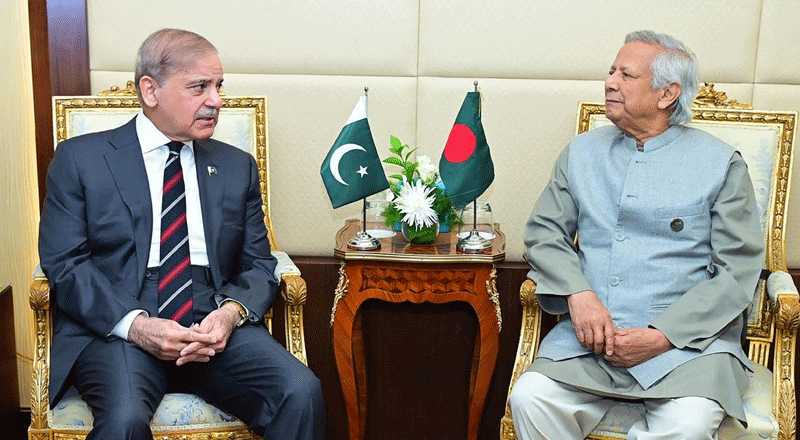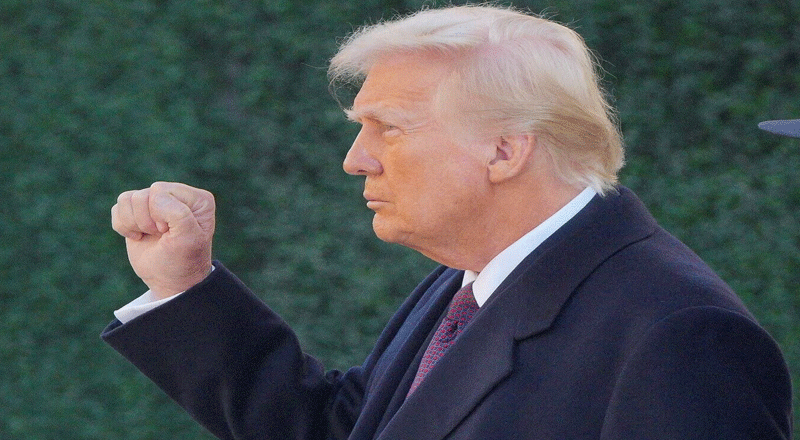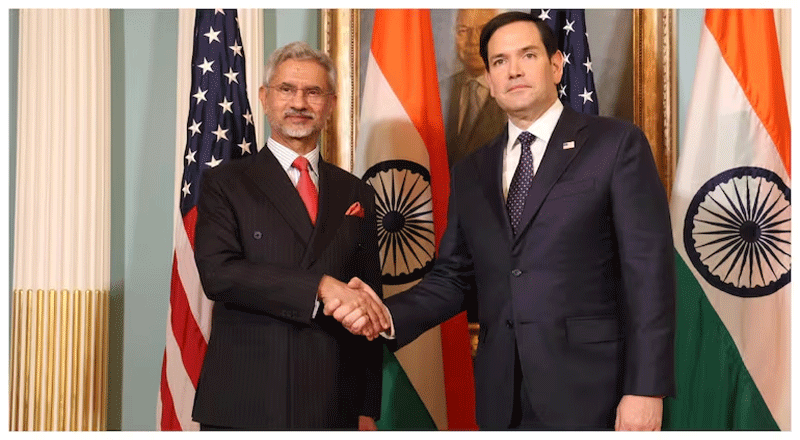A High-Stakes Intelligence Visit Raises Eyebrows
For the first time in decades, Pakistan’s Inter-Services Intelligence (ISI) chief, Lt Gen Asim Malik, visited Bangladesh, landing in Dhaka via Dubai earlier this week. He was received by Lt Gen Muhammad Faizur Rahman, Quarter Master General of the Bangladesh Army—an official reportedly known for his close ties with Islamists and Pakistan. This development, first reported by The Economic Times, has triggered intense scrutiny in India, given the visit’s potential strategic implications.
This high-profile meeting is being perceived as part of a broader intelligence-sharing effort between Pakistan and Bangladesh. Analysts warn that such cooperation could pave the way for subversive activities, including cross-border disturbances that may directly impact India’s northeastern states. Malik’s visit also aligns with the shifting geopolitical landscape in South Asia, as regional powers reassess alliances and strategies.
Dhaka and Islamabad: From Estrangement to Engagement
The historical animosity between Bangladesh and Pakistan dates back to 1971 when Bangladesh gained independence after a brutal war. For decades, relations between the two countries remained frosty. However, a significant political shift in Bangladesh has led to an unprecedented thawing of ties.
The change began with the ousting of long-time Prime Minister Sheikh Hasina last year, amid widespread protests. Under interim leader Muhammad Yunus, Bangladesh has gradually re-engaged with Pakistan. Meetings between Yunus and Pakistani Prime Minister Shehbaz Sharif at international summits have signaled a willingness to mend fractured ties.
The results of this diplomatic rapprochement are already visible. Bangladesh’s interim government has relaxed trade restrictions with Pakistan, removing physical inspection requirements for cargo. Additionally, direct sea links between the two nations, severed since 1971, are being re-established.
Perhaps the most significant shift is in military cooperation. From February 2025, Pakistani military personnel will begin training Bangladeshi forces, and Dhaka will participate in Aman 2025, a multinational naval exercise hosted by Pakistan in Karachi. These developments underscore a growing strategic alignment that could have far-reaching consequences for the region.
India’s Growing Concerns: A Security Nightmare?
India is closely watching the evolving Bangladesh-Pakistan dynamic, given its implications for national security. The potential for increased intelligence cooperation between Dhaka and Islamabad has raised alarms in New Delhi, particularly concerning cross-border security threats.
One major area of concern is the Siliguri Corridor, a narrow stretch of land that connects India’s northeastern states to the rest of the country. Any increased Pakistani influence in Bangladesh could exacerbate security challenges in this vulnerable region. Experts fear that militant groups operating in the northeast could leverage the renewed Bangladesh-Pakistan ties to intensify destabilizing activities.
“There is no doubt that relations between Bangladesh and Pakistan have improved overall. This shift has security implications for India’s northeastern states,” noted Shanthie Mariet D’Souza, founder of the Mantraya Institute of Strategic Studies, in an interview with DW.
Adding to India’s strategic concerns is China’s potential role in this equation. With its increasing foothold in South Asia, Beijing could exploit the growing Bangladesh-Pakistan ties to expand its regional influence. India’s northeastern states—including Assam, Meghalaya, and Tripura—have historically been hotspots for insurgencies, human trafficking, and smuggling. A closer Bangladesh-Pakistan-China nexus could further complicate India’s security calculations.
Geopolitical Balancing or a Strategic Gamble?
While Dhaka’s newfound warmth toward Islamabad could be viewed as a counterbalance to India’s regional dominance, this strategy carries significant risks. Bangladesh has traditionally maintained strong ties with India, and any shift in alliances could strain this relationship.
At the same time, it remains unclear whether Bangladesh’s interim government is pursuing a long-term strategic realignment or merely leveraging the situation for short-term diplomatic gains. Either way, India must tread carefully. The coming months will be crucial in determining whether Bangladesh’s outreach to Pakistan is a temporary recalibration or a deeper geopolitical pivot.
What Lies Ahead?
Lt Gen Asim Malik’s visit to Dhaka marks a turning point in South Asian geopolitics. While the full extent of discussions between Pakistan and Bangladesh remains undisclosed, intelligence cooperation and regional security were likely at the forefront.
India now faces a complex challenge: safeguarding its strategic interests while navigating evolving power dynamics in its neighborhood. With Bangladesh and Pakistan strengthening their ties at a time when India’s northeastern states are already grappling with insurgencies, smuggling, and external influences, the stakes are higher than ever.
“The important questions to consider are whether these strengthening ties are simply a reaction to India’s tactical pressure, or if they are part of a larger design to destabilize India. If we assume the latter is true, can the present regime in Dhaka afford to pursue such a policy? The answer is no,” argued D’Souza.
As South Asia’s geopolitical landscape continues to shift, India must remain vigilant, proactive, and strategic in countering emerging threats. The coming months will determine whether Dhaka’s rapprochement with Islamabad is a pragmatic foreign policy maneuver or the beginning of a deeper realignment that could reshape regional dynamics.
(With inputs from agencies)





